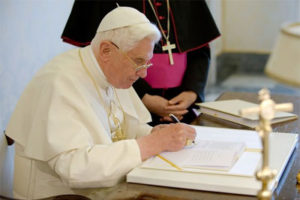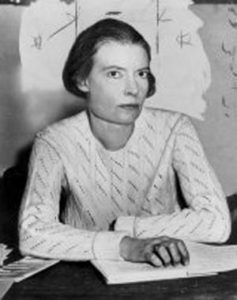The Working Catholic: Baseball Lesson
by Bill Droel
Chicago White Sox hurler Chris Sale forgot that he is a member of a powerful labor union. Instead of following normal grievance procedure, he recently used a scissors to voice his objection to a management decision and destroyed team uniforms. Further, Sale by-passed his union steward, outfielder Adam Eaton, by whining that his manager should have addressed his grievance. He thus joins the list of rogue Sox.
It is not necessary to go all the way back to the 1919 Black Sox. Albert Belle, who played two seasons for the Sox in the late 1990s, exhibited a temper. So too on several occasions did Ozzie Guillen, a Sox infielder 1985-1997 and its manager 2004-2011. Jimmy Piersall, afflicted with bipolar disorder, was not a Sox player but was fired as their announcer for his criticisms of management. Then there is Dick Allen, who in 1972 brought his controversial reputation to Chicago.
Unlike Jackie Robinson (1919-1972) and other pioneering black major leaguers, Allen “would not follow Branch Rickey’s (1881-1965) directive to turn the other cheek and accept subordinate racial status,” writes Mitchell Nathanson in God Almighty Hisself: the Life and Legacy of Dick Allen (University of Pennsylvania Press, 2016). That is, Allen was in the second generation of black players and was not into “protecting and promoting illusions.”
Allen began his major league career in 1964 with the Philadelphia Phillies. He was used in unfamiliar positions, was injured on-and-off and was given a nickname (Richie) that was never before applied to him. In those days before a union and before free agency, Allen was annually a spring holdout for a higher salary. Allen also scuffled with other players, including a fight. He was late to the ballpark and violated curfew. To cope with his own shyness, Allen gave contradictory explanations to the press. In the opinion of some younger people, Allen was a cool guy. But many Philadelphia writers and fans considered him lackadaisical and the boors among them threw garbage, occasionally including a battery, at Allen. Although Allen “took no formal position” on race relations or urban discontent, Nathanson writes, he “became the symbolic face that unleashed white anxiety and discontent.”
How did Allen perform? During his seasons in Philadelphia (1964-1969), Allen was Rookie of the Year and three-time All Star (seven total appearances in his career).
After shorter stints with two National League teams, Allen came to our Sox and promptly staged a 41-day salary holdout. But, at least for awhile, Sox’ manager Chuck Tanner (1928-2011) knew how to handle Allen without ridicule or excessive pushback. In fact under Tanner, Allen was named team captain. As Nathanson wisely notes, Allen didn’t suddenly change his personality. “What changed was his employers’ understanding of him.”
Cubs’ manager Joe Madden, who at the moment is revered in Chicago, says he learned from Allen: “The more freedom the players feel out there, the greater discipline and respect you’re going to get in return.” If in any company, Madden continues, “employees have to come in and be concerned about a bunch of tedious nonsense, it’s going to prevent them from performing.”
Speaking for many of us on the South Side, former Sox’ executive Roland Hemond says: “Chuck Tanner and I both felt that Allen helped saved the franchise” by boosting fan interest. There was at the time pressure from some Sox’ owners and other club owners to move our team to Milwaukee or maybe Seattle.
Nathanson does not absolve Allen from problems that swirled around him. But “the true villain in [Allen’s] story was bigger and more all-encompassing than any individual.” Racism, of course. In Allen’s case it took the form of expecting each black to meet so-called traditional expectations. The wider lesson, however, is one that applies to all sports, to the tech industry (particularly to the biggest companies), to food growing and distribution industry, to hospitals and colleges that rely on part-timers, to major retail stores and more. Allen, writes Nathanson, opposed the idea that workers “were property to be bought, sold, valued and discarded by owners at their whim.” Despite the intentions of any one executive or any one employee, there can be an entire “system geared toward exploitation.” This, by the way, is what Catholicism means by saying exploitation is an objective sin, even if an executive is kindly or if an employee labors out of necessity or even to serve the church.
Allen’s stats qualify him for the Hall of Fame. Yet baseball philosopher Bill James is opposed, not because of any specific disruption, but because Allen “did more to keep his teams from winning than anybody else who ever played.” The decision is now up to the Golden Era Committee at the Hall. It meets in 2017 and will vote on the matter.
Droel edits INITIATIVES (PO Box 291102, Chicago, IL 60629), a free printed newsletter on faith and work.



